Weed in Washington: Cannabis Legal Status Guide
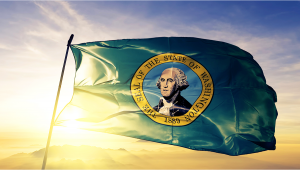
- 1. Cannabis laws in washington
- 1. a. Possession
- 1. b. Sale
- 1. c. Growing
- 2. Is cbd legal in washington?
- 3. Is it legal to send cannabis seeds to washington?
- 4. Medicinal cannabis in washington
- 5. Industrial hemp in washington
- 6. History and politics
- 6. a. Politics
- 7. Helpful hints
Home to nearly eight million residents, Washington is a state located in the Pacific Northwest region of the Western United States. Famed for its magnificent mountainous regions and fertile agricultural lands in the east, the 13th most populous state in the US attracts nearly twenty million visitors annually.
In recent years, a seachange in attitudes towards cannabis in the US has seen multiple states introduce both legalized recreational and medicinal cannabis. But what about weed in Washington? In today’s article, we’ll take an in-depth look at today’s Washington marijuana laws, including all the details on possession, sale, and growing. But before we get into the nitty-gritty, let’s begin by answering a simple yet always vital question - Is weed legal in Washington?
Cannabis laws in Washington
In a word, yes! Both recreational and medicinal cannabis is legal in Washington, with the state the first in the country to legalize the sale and use of recreational weed. Approaching the tenth anniversary of the changes to Washington weed laws, it was back in December 2012 that a public referendum would finally end decades of cannabis prohibition within the state. Decided by referendum with over 80% of the adult Washington public taking part, a decisive 56% would vote in favor of cannabis recreational legalization. A watermark moment in US cultural history, the state’s decision to legalize the use and sale of recreational cannabis would set a precedent that has since seen a further twenty-one states adopt similar legislation over the past ten years.
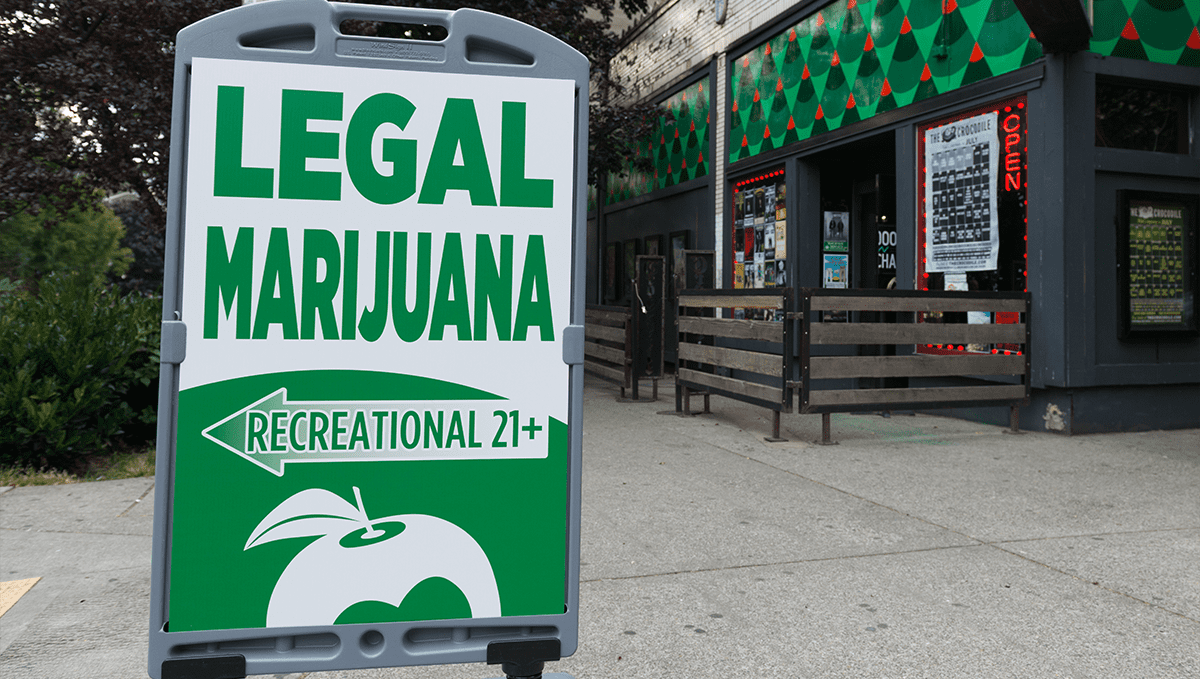
However, while weed in Washington has been legalized at the state level, and despite repeated campaign promises from the current administration, marijuana remains illegal under federal law. Despite 37 states now legalizing medicinal cannabis, existing federal laws still classify cannabis as a Schedule 1 drug. This absurd classification deems cannabis to be considered in the top bracket of dangerous drugs with no recognized medicinal benefits.
Possession
Under Washington state law, any adult aged 21 or over is permitted to purchase, use and possess cannabis; however, as you might expect, there are several restrictions and laws that must be adhered to. Possession limits are restricted to the following:
- One ounce (28 grams) of cannabis flowers
- 16 ounces of any cannabis-infused product
- 72 oz of cannabis-infused product (in liquid form)
Like most countries and states, cannabis consumption is not permitted in public. However, anyone found in violation of this will only face a civil infraction and an accompanying fine. They will not be arrested and not charged with a criminal offense.
Like alcohol, it is also forbidden to drive while under the influence of cannabis. This is potentially confusing as THC remains prevalent in the bloodstream for much longer periods than alcohol. As such, it is wise to exert caution if you plan to drive, even if you have not consumed marijuana prior to getting behind the wheel. Individuals found to exceed permitted THC levels in their bloodstream will be handed a DUI - (driving under the influence) if the levels of THC in their blood are higher than the maximum permitted by law.
Sale
As part of the 2012 initiative, the sale of cannabis was also legalized, allowing for the first regulated and licensed recreational dispensaries in the US. A truly game-changing moment for American culture as we know it today, the sale of cannabis in Washington is regulated by the state’s Department of Health in conjunction with the Washington State Liquor Control Board (WSLCB) and the Department of Agriculture. These three branches of state government are responsible for overseeing the licensing and regulation of the sale of marijuana. It is forbidden for anyone to sell cannabis in Washington without having first obtained a license.
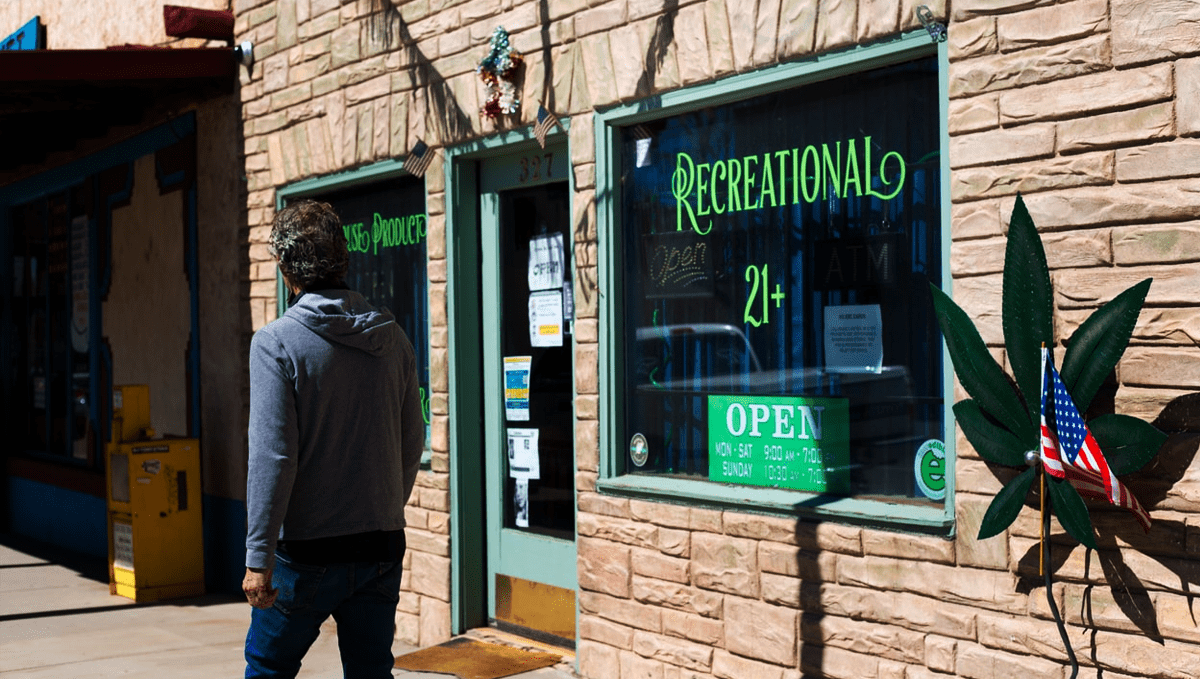
Much in the same way that alcohol sale and consumption is restricted, Washington cannabis laws allow for independent and chain retailers to operate when adhering to specific restrictions, including:
- Dispensaries must be located at least 1,000 feet away from schools and public parks.
- Limited opening hours
- A photo ID must be provided by the customer before the sale of any marijuana or related products.
- Customers must be aged 21 or over.
To obtain a license to sell (or cultivate) cannabis in Washington, an application must be submitted to the WSLCB. A variety of licenses covering both the sale and production of cannabis or cannabis products also include the transportation of the plant, medical research, and those looking to become members of a Medicinal Marijuana Cooperative.
Growing
Unfortunately, despite progressive cannabis laws, it is not permitted to cultivate cannabis in Washington for personal/recreational usage. However, Washington weed laws permit the cultivation of marijuana for medicinal purposes. Therefore, while you can obtain permission to grow your own medical marijuana at home (more on that later), this is not the case for personal use.
As mentioned earlier, only those possessing a grower, processor, or retailer license are permitted to cultivate cannabis or produce marijuana-infused products, like edibles. Despite movements to legalize home cultivation, it remains illegal to grow cannabis without a state-issued I-502 License. An I-502 License permits the possession, production, and sale of cannabis in Washington.
Only those looking to purchase or operate a cannabis business may apply for a state license, with no permits issued for anyone looking to grow for personal or recreational usage. Under Washington marijuana laws, the license operates with three specific categories:
Producer License
This license is available to those involved in the cultivation of cannabis and allows for the production, possession, delivery, and distribution of marijuana to distribution outlets or dispensaries.
Processor License
Available to those involved in the process, bundling, and labeling of cannabis or cannabis-infused items for sale to retailers; This license specifically allows for processing, packaging, possession, delivery, and distribution.
Retailer License
Available to anyone selling cannabis or cannabis-infused items at approved retail outlets;
Under the regulations, it is not possible to be licensed in all three categories, although it is possible to be licensed under two of the three categories. For example, it is permitted to be both a producer and a processor, but it is not permitted to be licensed as a producer and retailer. Furthermore, it is not possible to be licensed as both a processor and retailer.
Is CBD legal in Washington?
Yes, CBD is legal in the state of Washington. In 2017, the Washington State House of Representatives passed House Bill 2334. This decision allowed cannabis producers to use CBD, even if the source has not been licensed by the State Liquor or Cannabis Board. Consequently, CBD products are legal in the state as long as they don’t contain more than 0.3% THC. The laws governing CBD vary from state to state, however, so you cannot take CBD products across state lines. In Washington, It is possible to buy CBD products from licensed outlets or to obtain them from a medical practitioner with the appropriate certification.
Is it Legal to Send Cannabis Seeds to Washington?
Unfortunately, because of the separation between state and federal law, it is not permitted to send sends across state lines. This is a consequence of cannabis being federally illegal, irrespective of whether the state has legalized cannabis. This also applies when traveling from state to state where cannabis is legal.
The application of this law also extends to cannabis seeds purchased from outwith the US. Any cannabis seeds brought into the US will be seized by Customs and Border Protection.
Medicinal Cannabis in Washington
One of the first states to legalize medicinal cannabis, medicinal cannabis has been available in Washington for nearly 25 years, following the passing of Initiative 692 in 1998. Under the terms of the bill, medicinal cannabis was made available to patients suffering from debilitating or terminal health conditions. At this point, only medical doctors and osteopathic physicians were permitted to authorize the use of medicinal cannabis. Under those early laws, patients were only permitted to possess an ambiguous “60-day supply of the plant”.
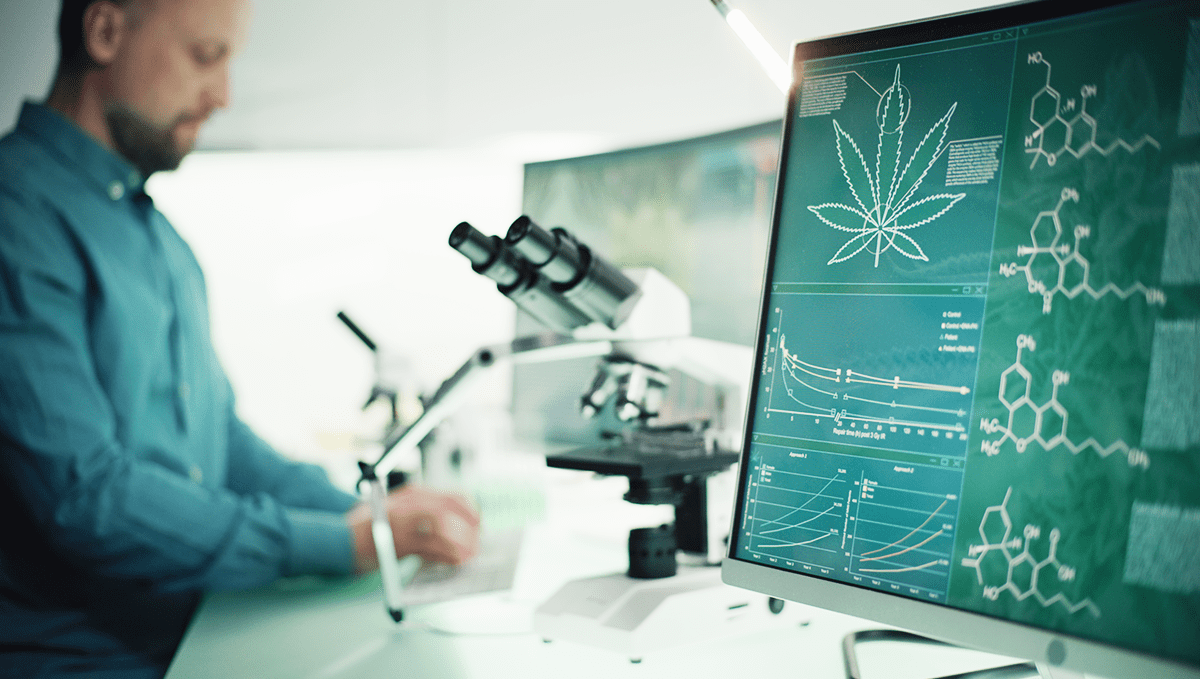
However, some nine years later, in 2007, an update to Washington marijuana laws to remove the ambiguity of its earlier bill would take place. Under the updated amendments to the law, a 60-day supply was categorized as being either up to 24 ounces of cannabis or as many as 15 plants. Just three years on, further amendments to the law would open the medicinal market, giving authority to several types of healthcare practitioners to prescribe cannabis as a medical treatment.
Today, anyone looking to use medicinal cannabis or grow marijuana for medicinal purposes must apply for a recognition card. Once provided with the requisite authorization, it is permitted for medicinal users to grow:
- Four plants for personal medical use, and
- Possess up to six ounces of cannabis cultivated from their plants.
Under the law, a maximum of 15 plants may be grown or located in any one housing unit, even if multiple qualifying patients or designated providers also reside there.
Industrial hemp in Washington
As a result of the 2018 Farm Bill, hemp cultivation has been federally legalized across the United States. As a result, it is no longer a federal offense to cultivate hemp in the US, with Washington going one step further by fully legalizing its cultivation. The state’s first post-Prohibition hemp crop was planted at Moses Lake in 2018, with a total of 180 acres planted during that year.
History and Politics
A country with a short but complicated history, the US has undergone a dramatic cultural shift in recent years with the legalization of cannabis in dozens of states, a perhaps unexpected and surprisingly rapid development. Yet, for the first 162 years of America’s existence, hemp was not only legal but actually a very successful and widely used plant. Even the great George Washington grew and consumed the plant. However, in the 1930s, both attitudes and laws quickly began to change.
Both the US government and mainstream media began a campaign of anti-hemp propaganda that was specifically designed to change the mindset of the wider general public in preparation for its eventual prohibition. Indeed, there is plenty of evidence that supports the theory that cannabis was banned to destroy the hemp industry. An article written on the eve of cannabis prohibition supported the claim that hemp was on the verge of becoming a super crop with the potential to dominate a variety of industries for years to come. However, nearly a century on, the US has once again returned to legalized hemp and cannabis laws, particularly in more so-called progressive states like Washington. Indeed, the state can and does take well-earned recognition for being the first in the country to legalize recreational cannabis.
Politics
When put to the vote in 2012, Washington’s public voted firmly in favor of cannabis legalization, with 56% of those taking part supporting the bill. A high turn-out of over 80% illustrated the depth of feeling that cannabis illegality had caused. The state collected over $559 million in legal marijuana income and license fees in 2021, according to the Washington State Treasurer. Of course, with some 44% saying no to legal weed, support was not overwhelming at the time. Yet with the industry generating a staggering tax revenue of $559.4 million in 2021, it would be fair to conclude that the decision has been broadly successful. Cannabis sales would see a rise of 28% in Washington in 2020, perhaps as a result of the COVID pandemic, which would see the world confined to their homes in a state of panic.
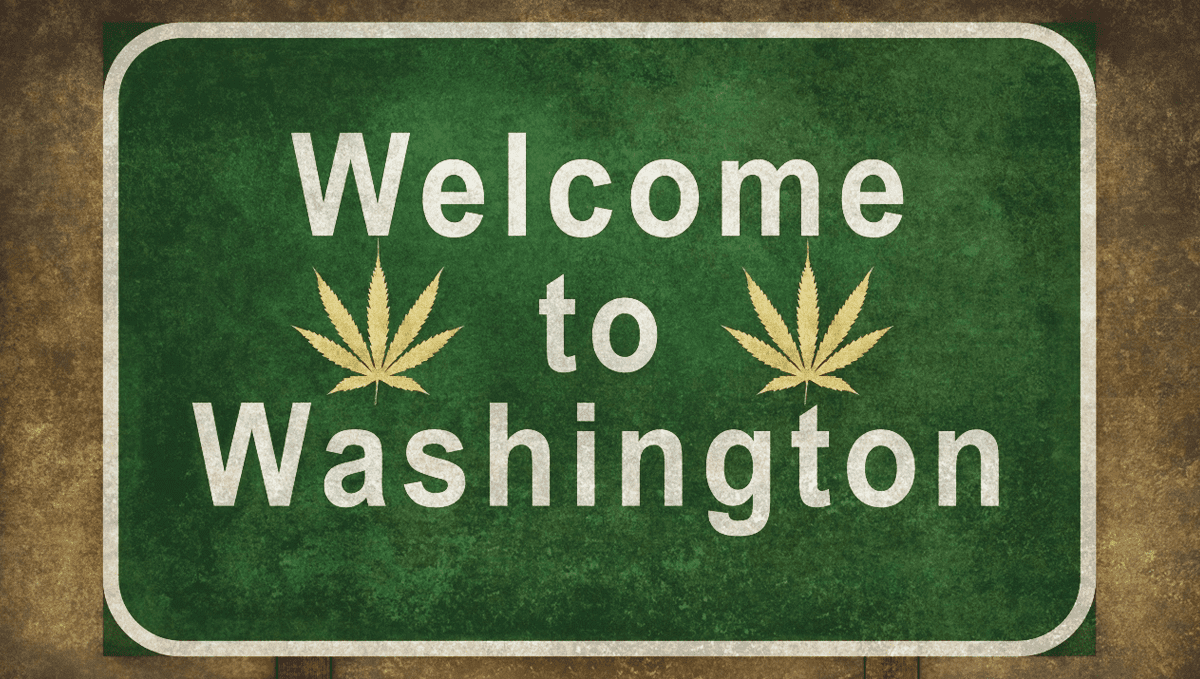
Nothing like a little puff to take the edge off… In addition, recent studies suggest that in states where cannabis is legal and available from licensed dispensaries, opioid deaths have seen a significant reduction. While those against cannabis legalization in Washington had raised concerns about the potential for the state’s youth to become something akin to a generation of zombified stoners, recent studies actually counter such fallacies. According to the study, cannabis consumption rates actually reduced following the legalization of cannabis. Perhaps it’s just not as cool as it was when it was an illicit activity taking place in your parent’s garage. Still, the study would certainly indicate that legalization has not had an adverse effect on the state’s youth. Indeed, much like the Netherlands, the normalization of cannabis has actually seen a reduction in its consumption levels.
Ultimately, while federal legality remains the honey pot at the end of the cannabis rainbow, Washington can take great pride in its upcoming ten-year recreational legalization anniversary, a moment that led to massive changes in both cannabis legality and its public perception.
Helpful Hints
The use of cannabis in a public place in Washington remains illegal, including smoking, vaping, and consuming edibles. Cannabis can be used on private property. However, property owners may restrict its use. If you’re traveling to Washington, cannabis is available to tourists aged anyone over 21 (ID will be required) who can purchase up to an ounce of flower, seven grams of concentrates, 16 ounces of edibles, or 72 ounces of infused beverages. In terms of openly 420-friendly hotels and legal consumption lounges, Washington lags a little behind the gold standards set in Oregon and California. However, there are plenty of cannabis tours in the state’s largest city, Seattle, which allow you to consume marijuana while learning more about the state’s cannabis industry. A beautiful and liberal marijuana-friendly state, Washington is definitely on the hit list for canna enthusiasts the world over!
If you want to learn more about cannabis laws from around the world, check out our in-depth Fast Buds blog section, where you’ll find all the latest cannabis news, grow tips and much more.







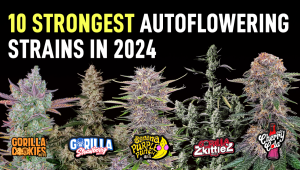

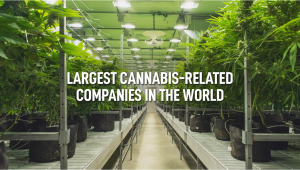
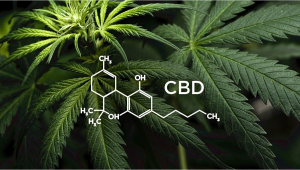
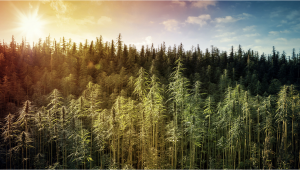
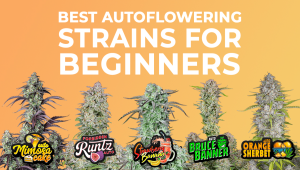



Comments